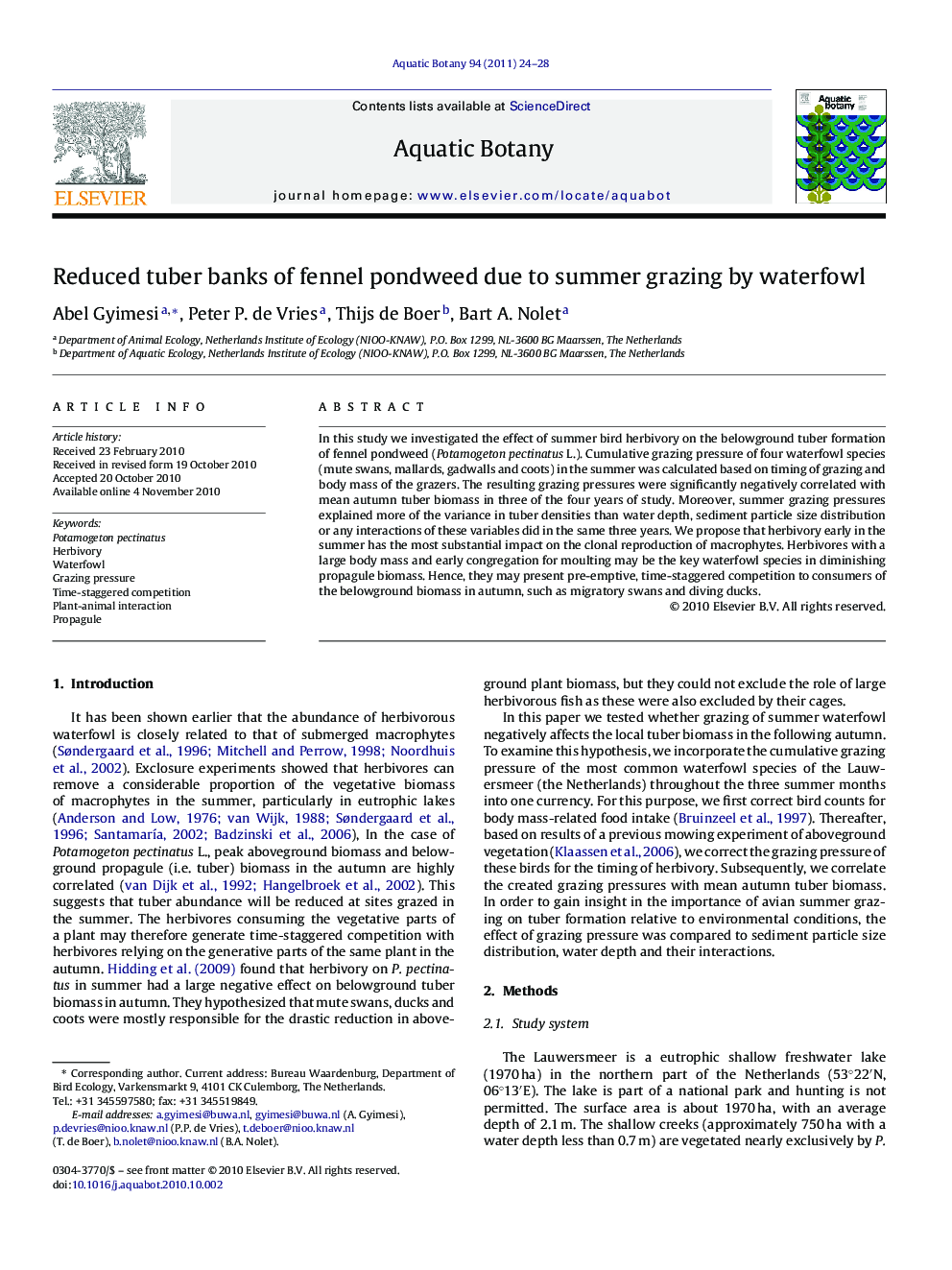| Article ID | Journal | Published Year | Pages | File Type |
|---|---|---|---|---|
| 4528180 | Aquatic Botany | 2011 | 5 Pages |
In this study we investigated the effect of summer bird herbivory on the belowground tuber formation of fennel pondweed (Potamogeton pectinatus L.). Cumulative grazing pressure of four waterfowl species (mute swans, mallards, gadwalls and coots) in the summer was calculated based on timing of grazing and body mass of the grazers. The resulting grazing pressures were significantly negatively correlated with mean autumn tuber biomass in three of the four years of study. Moreover, summer grazing pressures explained more of the variance in tuber densities than water depth, sediment particle size distribution or any interactions of these variables did in the same three years. We propose that herbivory early in the summer has the most substantial impact on the clonal reproduction of macrophytes. Herbivores with a large body mass and early congregation for moulting may be the key waterfowl species in diminishing propagule biomass. Hence, they may present pre-emptive, time-staggered competition to consumers of the belowground biomass in autumn, such as migratory swans and diving ducks.
Research highlights▶ Avian grazing in summer reduced tuber biomass of Potamogeton pectinatus in autumn. ▶ Grazing pressure affected tuber biomass more than water depth or sediment type. ▶ Large herbivores early in the summer had the most substantial impact. ▶ Summer herbivores present competition to tuber consumers in autumn.
